
including Dr Baluku Assinari
In my previous blog of December last year, I spoke how a dream of expanding Rwenzori Women for health to a full time project became a reality, thanks to ASTRAIA Foundation.
The Now
Prior to leaving Kagando in December 2018 I wanted to ensure that Sr Laheri had as much support as I could give her in the short time we had together. I left having had several discussions and planning meetings for the projects expansion not only with Laheri but with hospital management, and staff, as well as key people in the community.
By my return in March 2019, RWFH comprised: two full time staff appointments, Sr Merecy deputy to Sr Laheri and Nurse Joshua part-time, plus community health co-ordinators (field workers) and other support staff. I was pleased that the team had settled and worked well together, and that they were all eager to share their experiences …including lots of ideas for the future of the project! As for my role with the project: it is to offer as much encouragement and support as I can and to ensure its sustainability.
The project still primarily focuses on health education, including screening for hypertension, diabetes, malnutrition, HIV, and deworming. However, it is now increasing its range of activities and its geographical reach!

RWFH in Kasokero Village 

UMBRELLA PROJECTS
Over the years I have started projects/initiatives with which RWFH have been able to link administratively. This has proved beneficial as Sr Laheri and the team can co-ordinate these community initiatives and reach out to many more families. A couple of these initiatives are ‘hospital-based’ as I feel the community starts from the hospital itself: the patients and their attendants are the first point of contact that gives us an idea of what is happening in the community. Also the staff on the various projects can support each other as and when needed, which helps with the overall costs.
RainbowRoom: The RainbowRoom is where lots of play happens! It is run by Ruth, a social worker, supported by Nurse Harriet. The RainbowRoom helps children and their parents in having time for play, fellowship and laughter. Early in the new year they’ve had the support of a British visitor from York, where I live. Wendy Green, dedicated her 3 month stay to support the RainbowRoom; her husband Mike also did great work refurbishing our room including putting in a sink with safe drinking water, and restoring the ‘traditional oven’. It’s is now looking good…hopefully with not too many resident rats in the outlets!! Every morning Ruth goes on the wards and works with the children who are unable to come to the RainbowRoom and liaising with the nursing staff and rehabilitation team.

Ruth viewing the Weekly Programme in the RainbowRoom 
With Songs 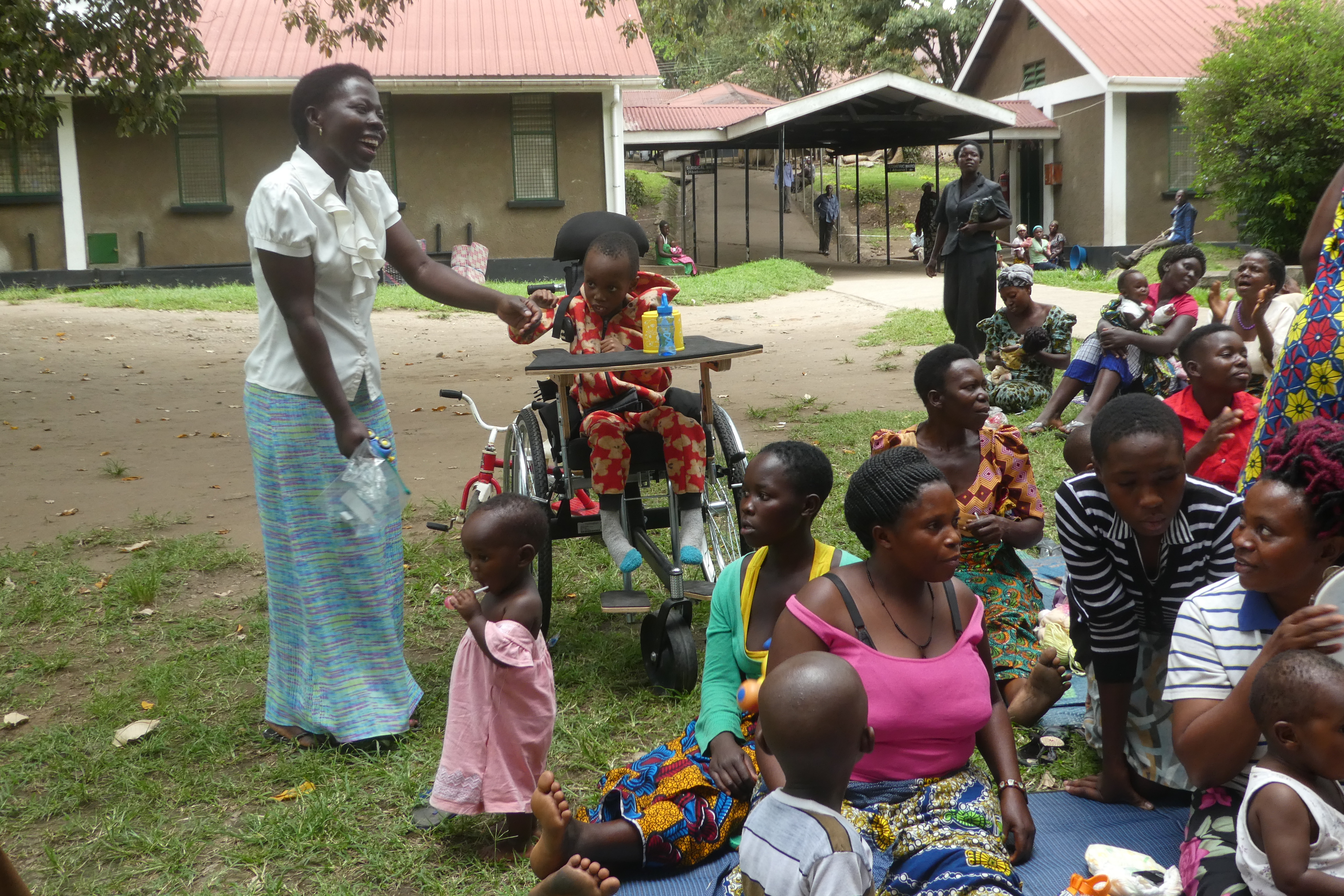
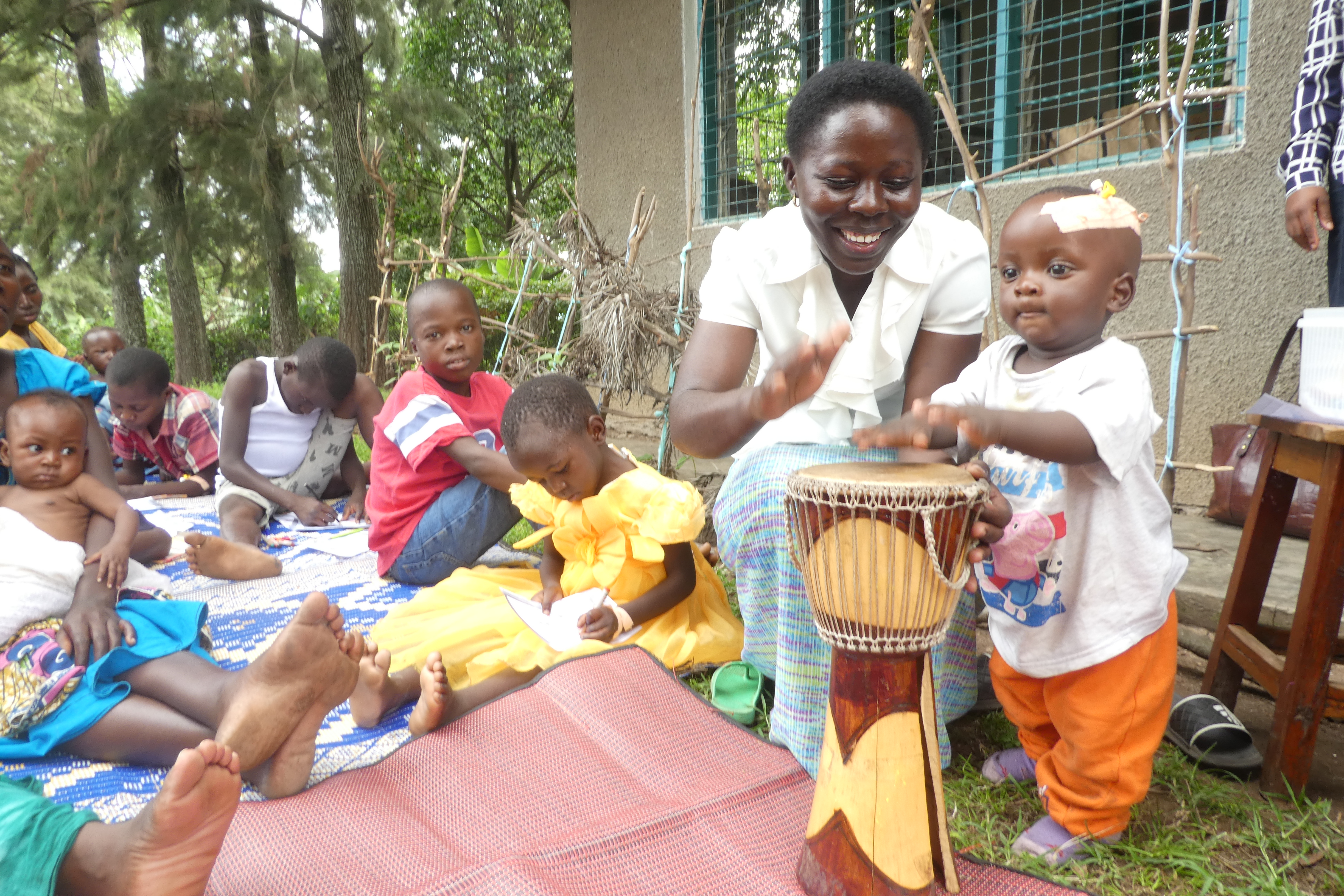
Anyone is welcome to play the drums! 
Bubbles
Nutrition Classes: Malnutrition is an ongoing problem in the area. This is not only due to the poverty, and the inclement weather or parching sun affecting the crops, but for many there is also a lack of nutritional knowledge. Now as it happens the RainbowRoom has a ‘traditional oven’. When it became the Rainbow Room I was told I could have the oven removed to make more space for the children to play during bad weather, but I felt I ought to leave it as one day the oven might come in useful…and so it proved to be: Nurse Jonis, who has a nutrition diploma runs Nutritional demonstration classes, for mums whose children have been admitted because of malnutrition and/or HIV.
Nurse Jonis goes food shopping at the local market with a couple of the mums. On returning to the hospital she talks to the group about the nutritional values, she shows them how to prepare the food, they cook it, and then they eat it! These class happen twice monthly. Once the children have been discharged from hospital RWFH visit the mums in the community to offer further support.

Nutrition Demonstration Classes 

Ready for cooking in the Rainbow Room Traditional oven 
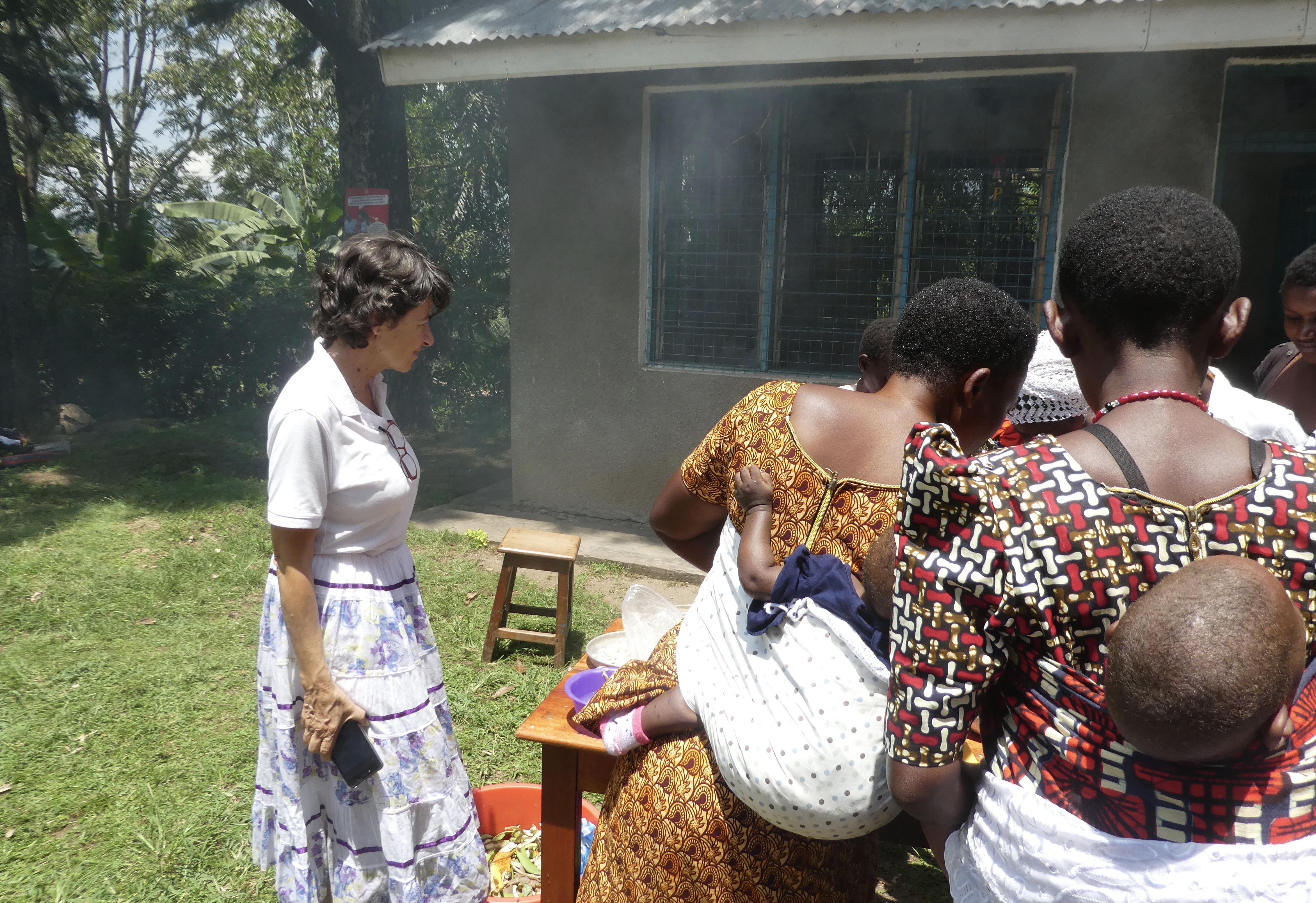
Taking it all in 

The drinking cups had to be replaced as they’d been chewed by rats
Menstrual Pads: In the Rwenzori area, menstruation brings many challenges to our women. Although disposable pads can be bought in drug stores, many cannot afford them: rags are generally used, but I’ve also been told of banana leaves being used.. Due to these basic and inadequate menstrual pads, girls often miss school during their period. RWFH have been given a great opportunity to help address this issue. A company that’s affiliated to Nestle (Zoegas Nestle) generously offered us a ‘one off’ donationThe method is to teach the women and girls how to hand stitch the pads. The programme is divided into several parts: Firstly there is a health education session on menses/puberty/menopause. These teaching sessions are held either after the monthly programme, or at schools, women’s co-operatives and at the RainbowRoom.The sewing session follows the health talk: those who show interest in learning are given needle thread and pad template. They are then asked to attempt at making a pad from any rag they find at home and to bring it either to RWFH office at the hospital or to our next visit. We check the pads that are brought to us and help with any further teaching, as required. Once we’re satisfied that the woman has the necessary skills to make them, and is keen, she is given a starter pack which includes: needles threads, scissors, material and a pair of knickers!
Using this pathway we are giving the women a skill that is not only benefiting themselves but gives them the opportunity to make pads for friends and be income-generating.
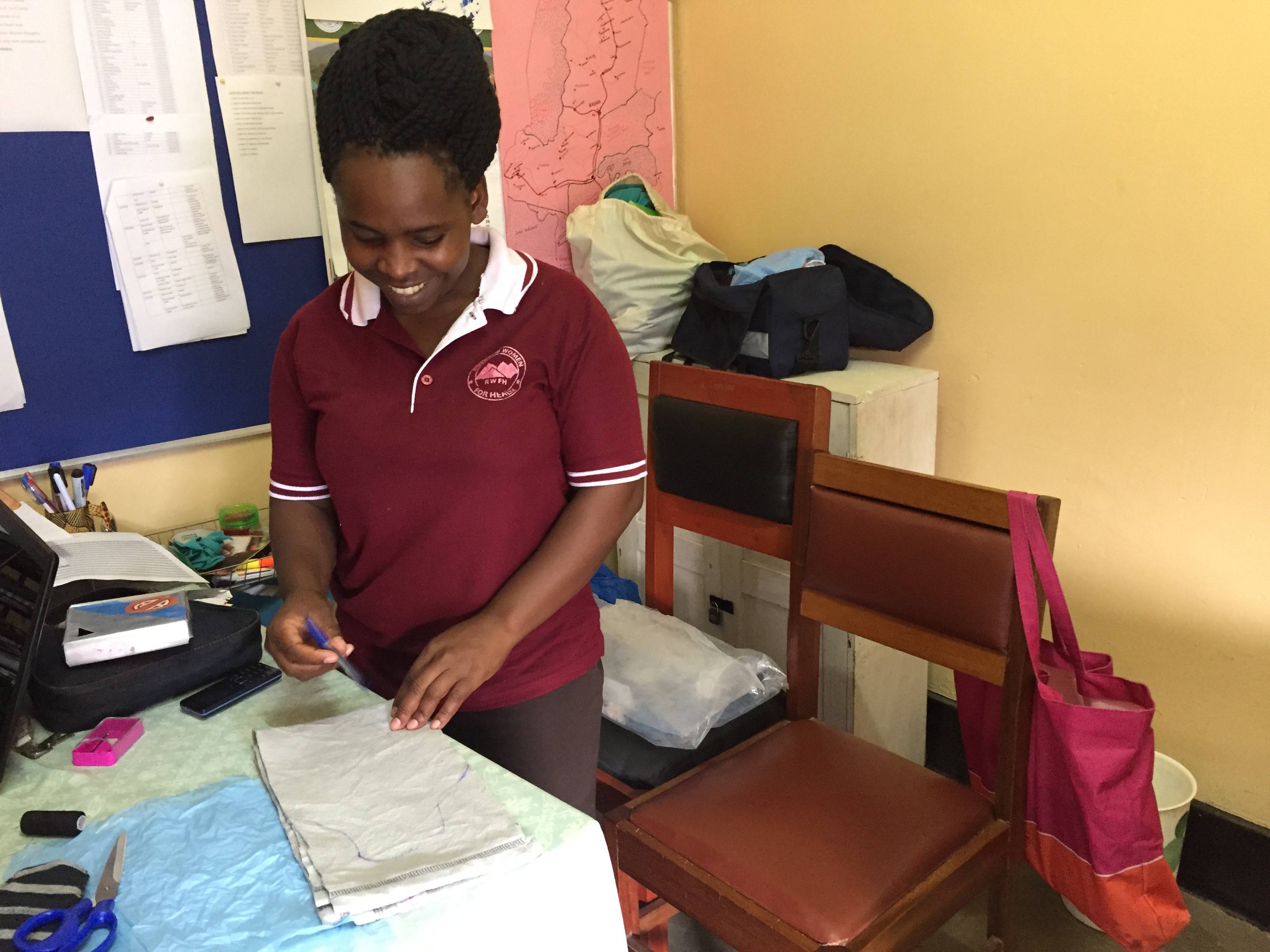
Nurse Merecy cutting out a pads template 
In Kalingwe (a village up in the mountains) teenage girls and women had gathered for RWFH menstrual pads workshop! 
Nurse Merecy is Lead for this projectI 
I’m doing my teaching bit!! 
Women come to the RWFH office in the hospital to learn about pads as well
Cervical Screening: In 2014 a Kagando friend came to see me. He told me his young sister-in-law had just been diagnosed with cancer of the cervix. “Our women are dying he said. Please do something.” Does words have haunted me. I’ve been trying to address this hugely devastating illness of cancer of the cervix in the area. I am told that cervical cancer is the biggest cancer killer in women in Uganda and yet there are no formal guidelines – from the government health sector (only a long document with recommendations) and certainly no funding that I’m aware of.
RWFH did establish cervical screening outreaches but because of the lack of structured pathway guidelines and management, I stopped the Outreach.
Since 2015, I have been working to have policies in place: the hospital’s new gynaecologist Dr Baluku Assinari has written a five year strategy plan “Kagando Community Campaign for Cervical Cancer Prevention Project” (C4 Prevention Project) and I feel now we can confidently move forward.
The Role of RWFH within this project will initially be education, as well as supporting the hospital ‘gunae clinic’ where necessary, but our main goal is to develop a pathway in screening and management. Once that’s done and funding is in place then we can safely restart Outreach cervical screening
BodaBoda (Motorbikes)
So far RWFH have run three biker workshops and all have been successful. On our last workshop one of the issues we discussed was of women ‘riding side saddle’- and the danger it presents. The Boda Bikers told us that they never consider the dangers and acknowledged that the women (or children!) were the first to fall off when there was an accident. We were all in agreement that it was only ‘traditional’ that the women rode this way and many were aware that in Kampala particularly, the ‘modern woman’ was riding ‘like a man!’. More education is needed but this was a step forward. One of the goals for RWFH is to see all passengers wearing helmets: I have a photo of children on the bike and only the biker wearing a helmet!

Anything & everything is carried on the BodaBoda 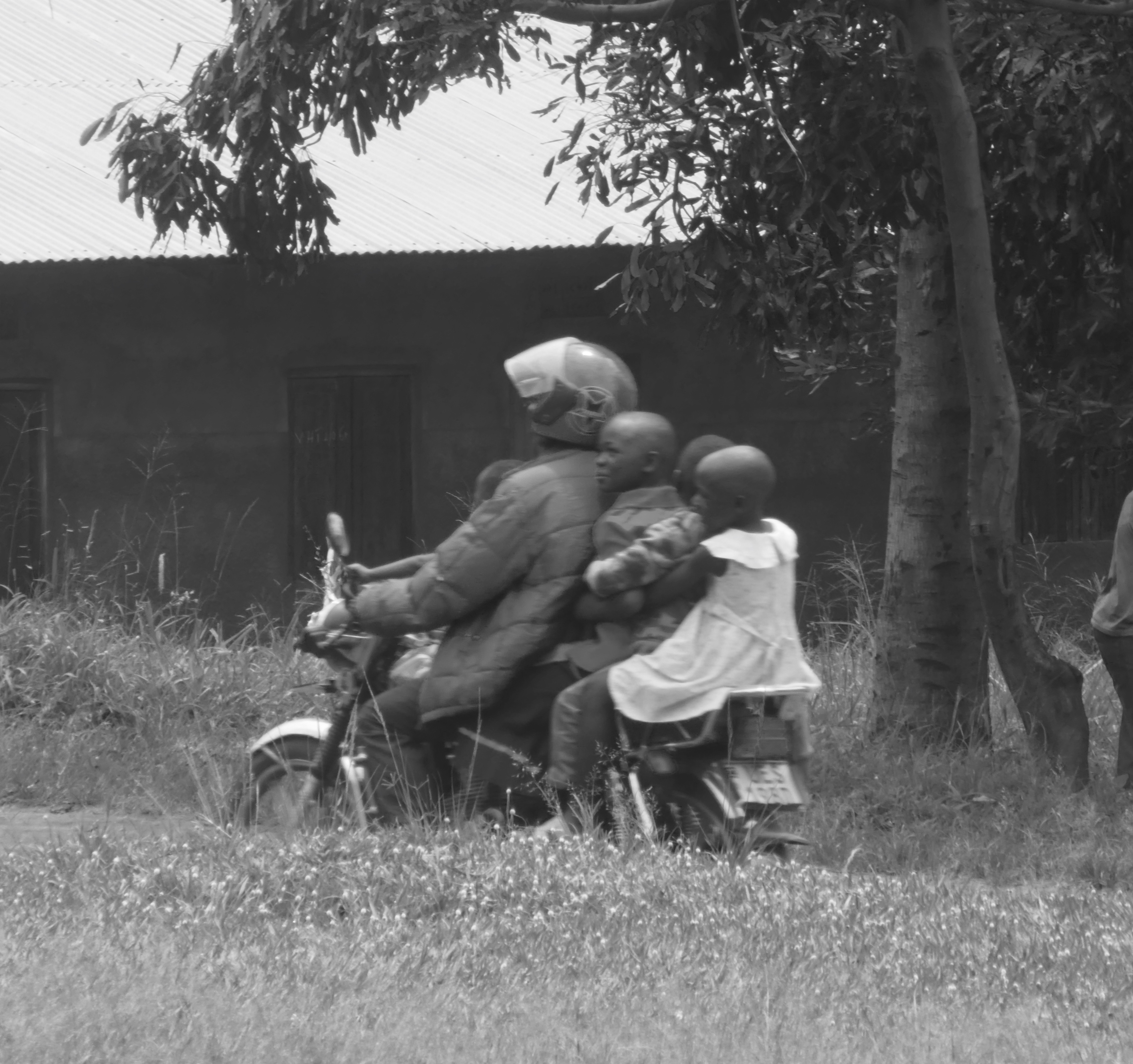
Helmets & safety awareness much needed 
We give safety talks to children as well. We were donated these high viz jackets more needed please!! 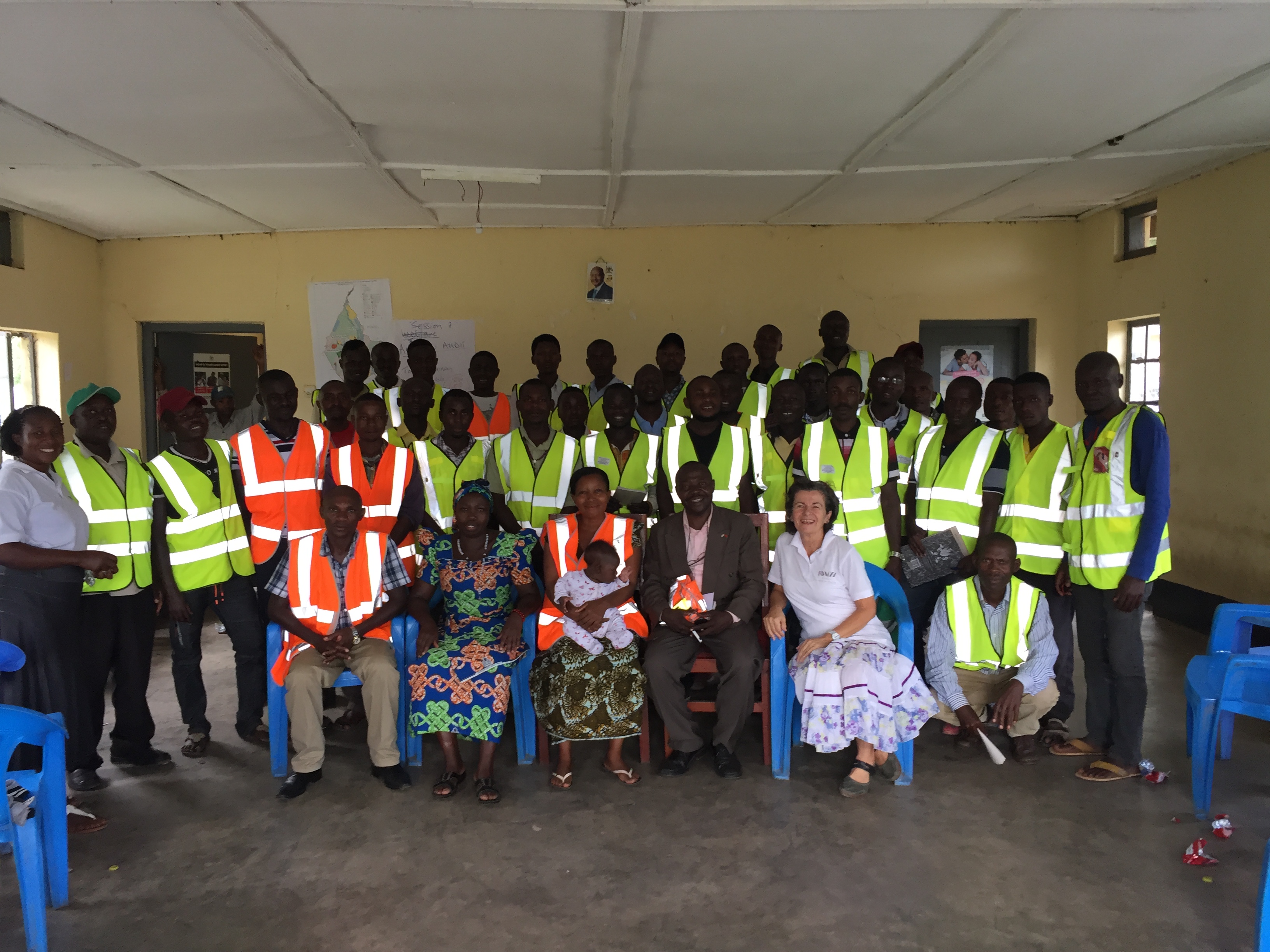
End of ‘RWFH Bikers Safety First’ Workshop 
Giving out donated High Viz Jackets 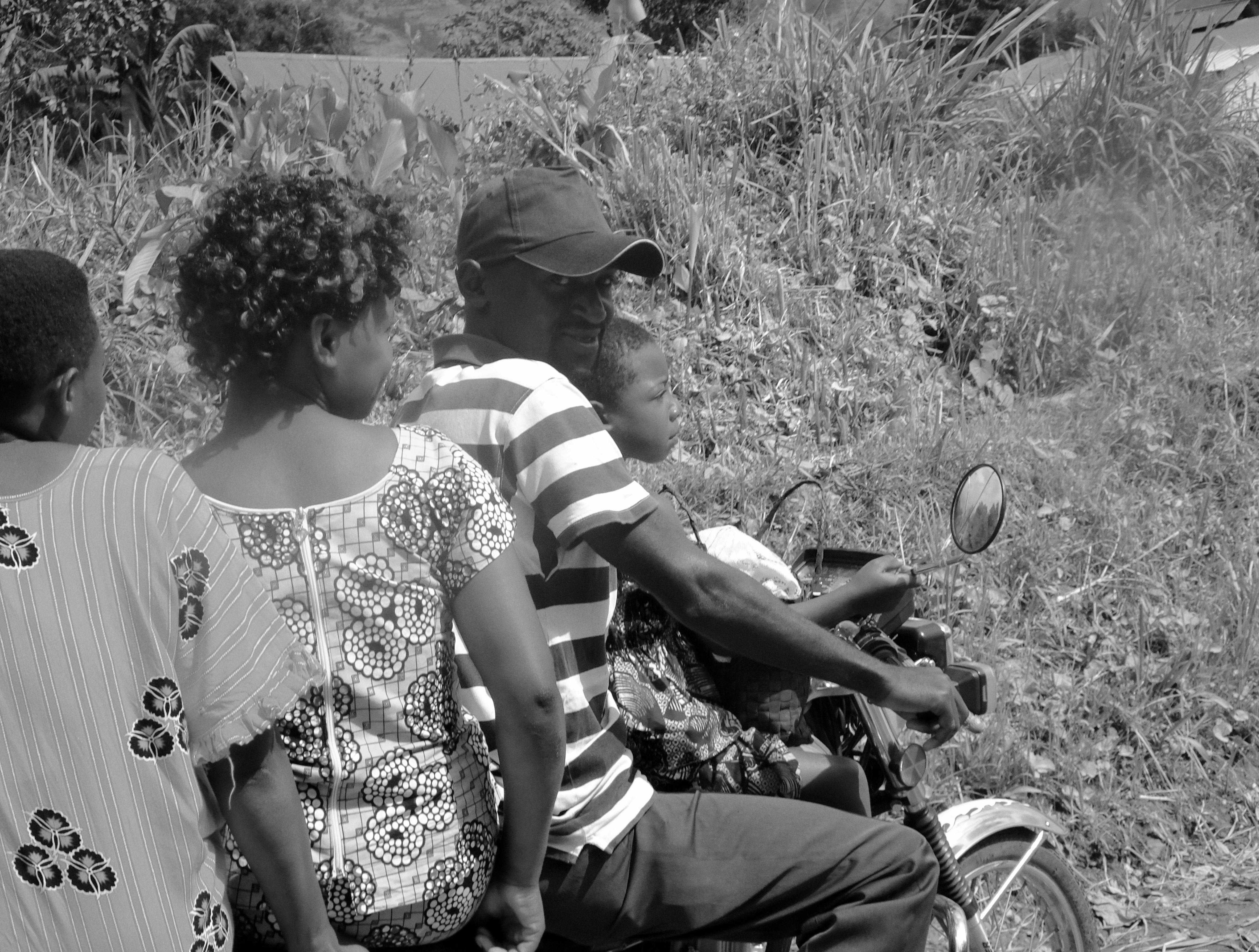
Women riding sidesaddle and child at the front
The Future
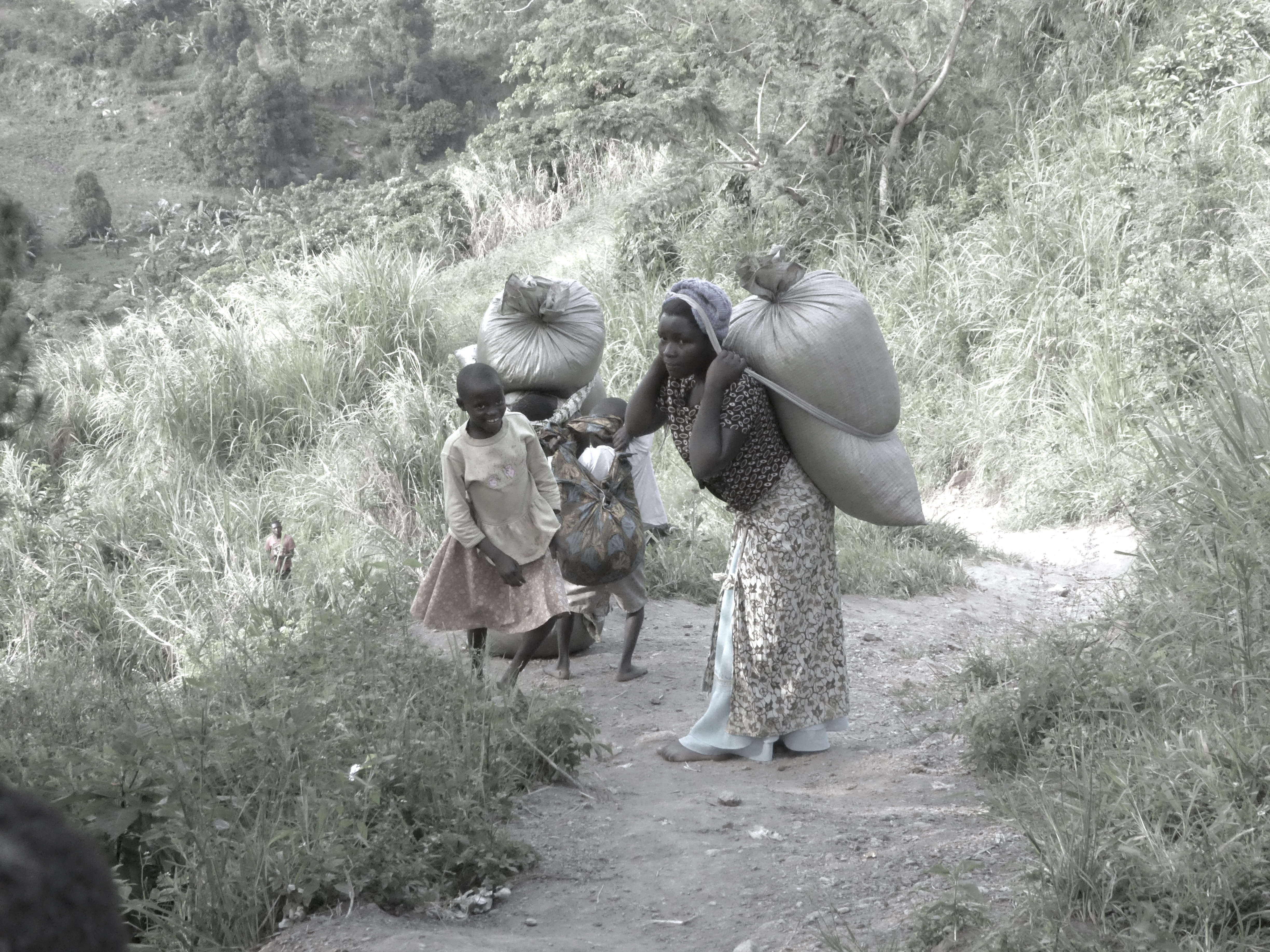
Children with disabilities/special needs often just live with their mother as the father would leave the family; often seeing the disability as bringing shame to the family and costing money. Other children are hidden away, and are found living in desperate conditions. I would like to explore the possibility of RWFH, in partnership with the rehabilitation team at the hospital, and outside agencies, supporting such families. Over the years we’ve had opportunities to be of help (as with little Rosie) however, there is so much more that can be done.
To support children and young adults with HIV
To link with local prisons and support female prisoners.
To raise awareness of RWFH overseas in order to establish further funding.
If you’ve reached so far thank you for reading this!

With immense thanks to ASTRAIA FOUNDATION and supporting donors without whom this one dream could never be realised
